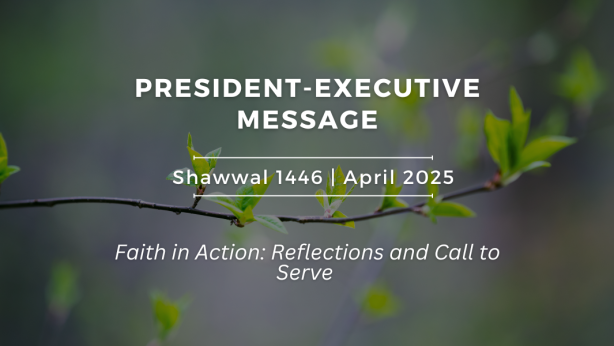The Quest for Equality at The Mount of Arafat

Asalamu Alaikum Wa Rahmatullah dear Brothers and Sisters,
The Quest for Equality at The Mount of Arafat
ثُمَّ أَفِيضُوا مِنْ حَيْثُ أَفَاضَ النَّاسُ وَاسْتَغْفِرُوا اللَّهَ ۚ إِنَّ اللَّهَ غَفُورٌ رَّحِيمٌ
(Chapter 2: The Cow 199)
Then pass on at a quick pace from the place whence it is usual for the multitude so to do, and ask for Allah’s forgiveness. For Allah is Oft-forgiving, Most Merciful. (Yusuf Ali)
Prophet Ibrahim raised the Foundations of Kaaba and established the house of Allah. Soon after, the nucleus of human society was established in and around Mecca and Kaaba gained especial status among Arabs who were scattered around Arabia. Clans of Querish became the caretakers of the Ka’aba and Arabs revered it as a sanctuary. An annual pilgrimage was established to honor the traditions of Prophet Ibrahim.
With the passage of time, two things took place. One is that the purity of Tawheed is no more. The corruption of the original message of Tawheed was complete with the introduction of idol-worshipping. Even the sanctuary around Ka’aba was surrounded by hundreds of idols. The second is that the clans of Quresh established themselves as the undisputed guardians of the House of Allah. This status was soon to be transformed into privilege. It was institutionalized through an elaborate process of legal and commercial decrees that confer commercial and social advantages to Quresh. This privilege was soon leveraged to expand Quresh influence in Arabia.
One of such privileges is the status given to Quresh and its allies during the hajj season. They used to meet the pilgrims from the rest of Arabia not at Arafat but at the edge of Macca near Al-Muzdalifa. Later, they bestow this privilege to other tribes that lives within the perimeter of Mecca. This included tribal alliances of Khuza’ خزاعة , creating a new class called Al-Humes الحمس. Prophet Muhammad, in his first and last Hajj, abolished this practice and established the standing at Arafat for all pilgrims. It was a renunciation of all forms of privilege and racism. It was a universal declaration that all humans are equal and the only viable metric of ranking is nobility of character.
It is during this Hajj, and on the Mount of Arafat, and in his Farewell Sermon, the Prophet made this point clearly and unequivocally as he declared that: “All mankind is from Adam and Eve, an Arab has no superiority over a non-Arab nor a non-Arab has any superiority over an Arab; also a white has no superiority over black nor a black has any superiority over white except by piety (taqwa) and good action.”
But racism is a pervasive practice that intersects with class, ethnicity, culture and geography, and existed in all societies. In its worst form, it legitimizes inequalities and creates barriers for groups that are positioned as inferior to access power, resources and equality.
With the advent of modern societies and narrow-minded nationalism, systemic racism became a huge instrument of injustice. With the advancement of colonialism, racism became an instrument of control and subjugations of indigenous populations, creating in its aftermath racial and cultural genocide. Recent discovery of the unmarked graves of indigenous children in a number of residential schools’ grounds must serve as a reminder of the dark legacy of systemic racism endured by the indigenous communities.
We should follow the example of Prophet Muhammed: he identified injustices, big and small, obvious or hidden, and more importantly, he acted on them. One such injustice is systemic racism and its impact on its victims. Therefore, we should never be indifferent about injustice. Nor we should accept racism and bigotry as a medium of exchange of value.
For those who are victims of systemic racism, we must learn how to be good allies to those impacted by systemic racism. We also must challenge bigotry and systemic biases in all its forms.
In Canada, and in the Western societies in general, Islamophobia is taking root and becoming an oppressive tool against our community. We should have the resolve to fight back any attempt to normalize it. Islamophobic laws like Bill-21 passed by the Quebec Government must be challenged in the courts as well as in the public square.
We welcome the move by the Federal government to hold a National Action Summit on Islamophobia and antisemitism. MAC was taking a lead in ensuring this summit is purposefully grounded in action to address the root causes of Islamophobia and the systemic racism that sustains it. We want to ensure any recommendations must be operationalized with clear and specific procedures, and details for implementation.
MAC demands that the government must commit to review its anti-terrorism laws and policies and replace them with new fit-for-purpose alternatives that do not stigmatize the Muslim community or any other community. Recent reports exposing systemic biases against Muslim-led charities paint a troubling picture of overreach and systemic biases. The government must also commit to a stringent oversight protocols for all government agencies involved in any counter terrorism work. The government must address the spread of hate, especially online. Reinstating section 13 of the Canadian Human Rights Act would be a step forward.
As we reflect on the core message of Hajj, we are reminded of the sacrifices Prophet Ibrahim in establishing Tawheed in the world. We also must follow the footsteps of Prophet Muhammed as he revived the message of Prophet Ibrahim and confronted the ills of his society and time.
Eid Mubarak
Sincerely,
Sharaf Sharafeldin, Executive Director
Muslim Association of Canada


